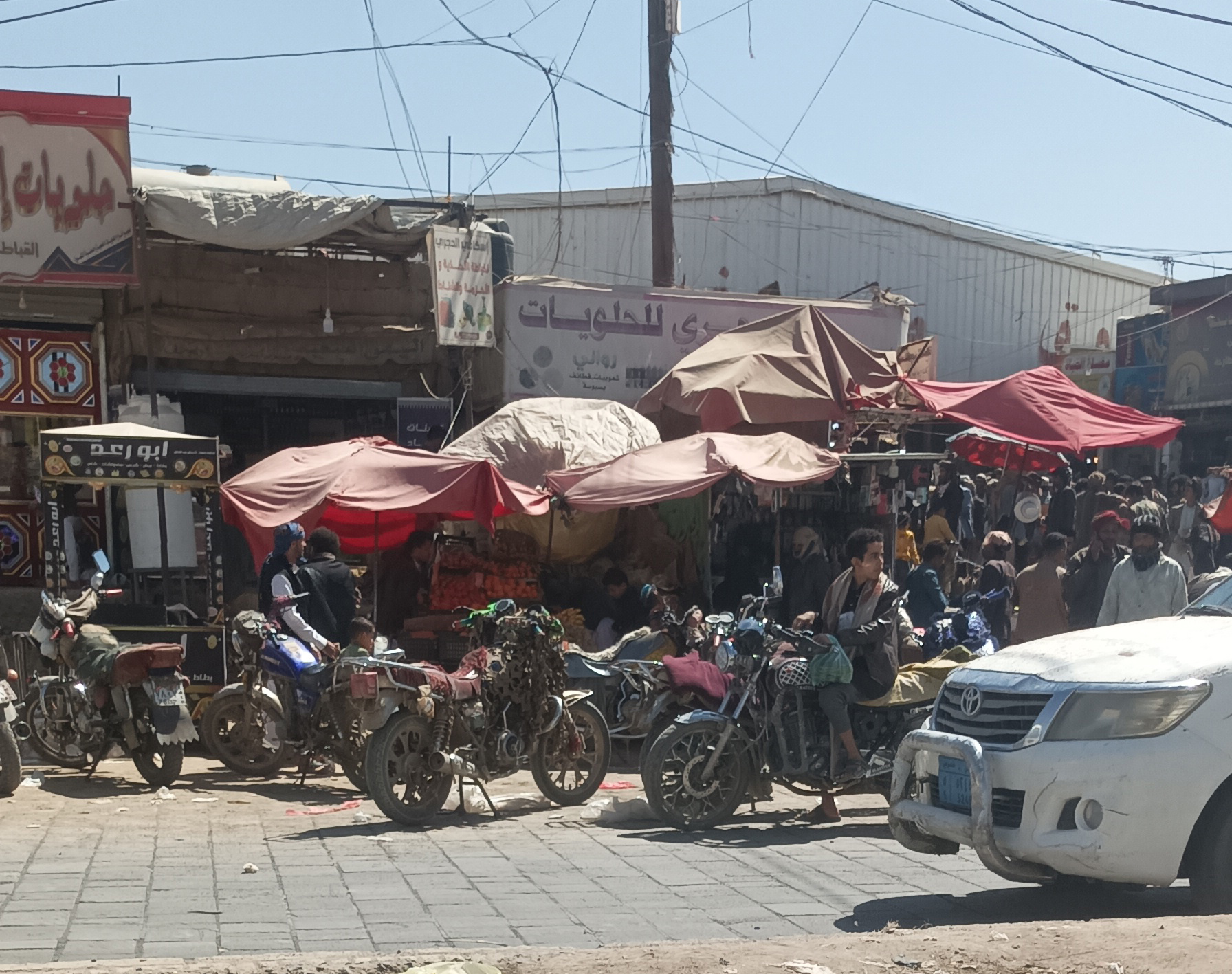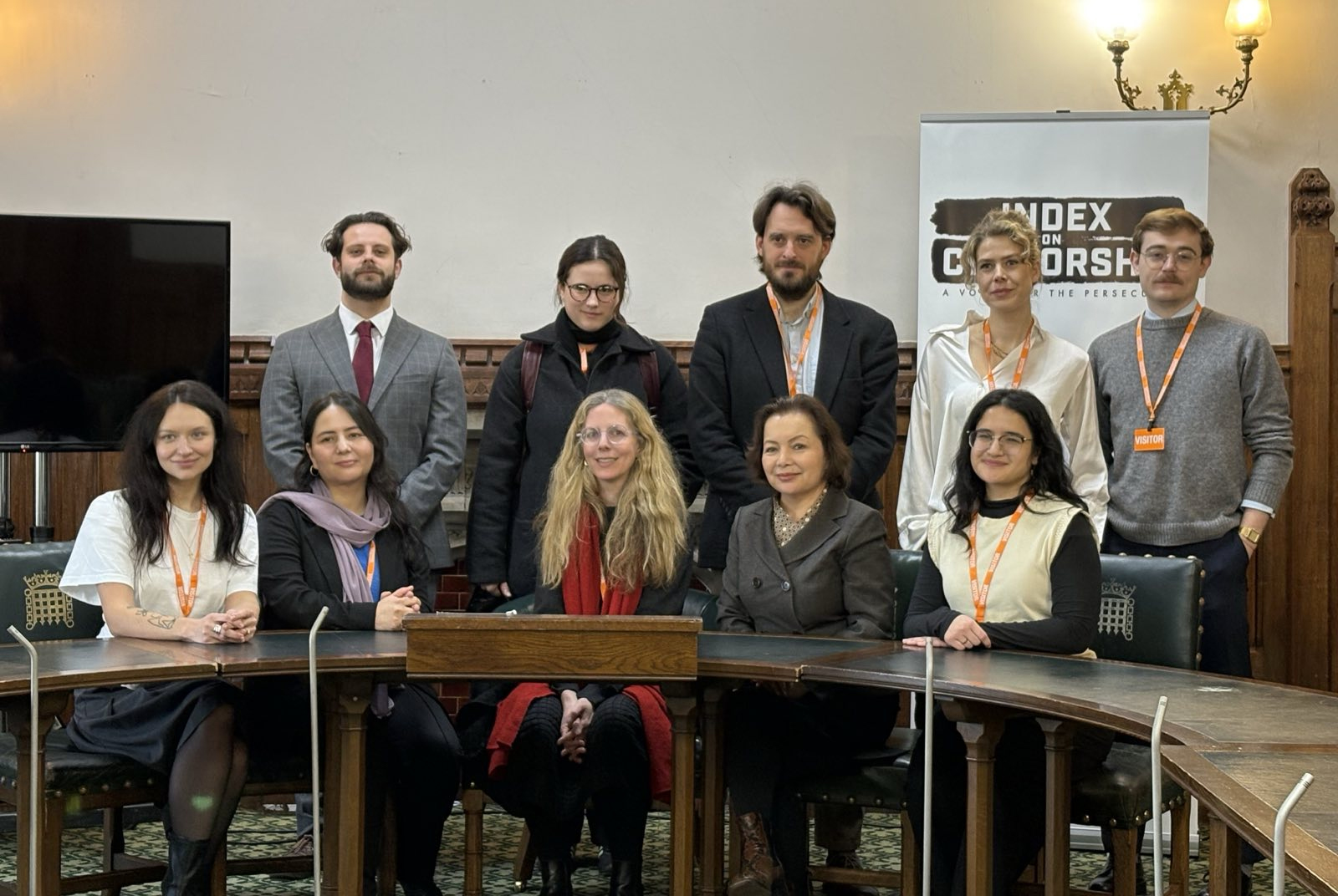On the outskirts of Sanaa, 28-year-old Badr Yaseen sits inside a four-square-metre salon. The interior wall is lined with full-length mirrors, and scissors, electric shavers, combs, and hair care products are neatly arranged on a cupboard and small shelves.
Yaseen greets each customer with confidence and warmth. Once they settle into the chair, he politely asks about their preferred haircut style before getting to work. As he cuts, he keeps up a friendly conversation, making the experience relaxed and personal.
Yaseen did not inherit his profession from his father or grandfather. He is the first in his family’s generation to take up this work. It has been a decision many in his family have called an act of “mutiny” against long-held traditions.
His brothers urged him to give up the job, and his uncles tried to dissuade him from continuing. Relatives frowned upon his choice, believing that Yaseen’s work as a barber “shames” the family. They all believe that this profession is only suitable for the “lower class”. Such beliefs run deep, woven into the fabric of social hierarchy and pride.
Yet Yaseen defied these norms. He has disregarded the opinions of his family, friends, and acquaintances. He has refused to bow to social censorship or the entrenched prejudices surrounding his choice.
In a country where a decade-long conflict has devastated the economy and wiped out countless jobs, Yaseen has prioritised survival over social status. Like him, many others have defied social norms and stereotypes, doing whatever they can to endure these harsh times.
“Not ‘wrong,’ not ‘obscene,’ not ‘immoral’.” These are the verbal bullets Yaseen fires back at anyone who criticises or disrespects him.
In Yemen, the law prohibits discrimination based on colour, origin or job. Despite that, discriminatory norms remain a prevalent plague in society.
Survival over status
Yaseen is classified as a tribesman. Married with four children, he was miserable when he was jobless two years ago, he recalls. Financial troubles darkened his life. He was willing to accept any job, except being a fighter for the war rivals in his country.
“I approached a salon owner and asked for work. He offered me a job, and I began as a barber,” Yaseen told Index.
When he started, he already had the know-how. “My brothers and close friends used to need a haircut, and I would do that. I did not do it for money. That is how I developed my skill.”
Yaseen was not planning to be a barber. It was just a favour or entertainment. Now, it is his money-making job.
“Had I been kept imprisoned by the social norms, my suffering would linger, and my children would starve. A barber is not a lower person. That is how hardships changed my mindset.”
Since 2015, a destructive civil war coupled with airstrikes has devastated Yemen, and it remains unresolved. Famine and food insecurity have prevailed, risking the lives of millions of people.
United Nations reports reveal that over 17 million people are going hungry in Yemen. This figure may rise to 18 million by February next year. Women and children are the most vulnerable.
With this bleak reality, Yaseen and countless of his like no longer disdain “lower class” jobs.
Yaseen has a friend named Nasser. Two months ago, Nasser shared his business idea with Yaseen: opening a chicken slaughterhouse. Although being a butcher is often considered a lower-class job among Yemenis, Nasser – himself a tribesman – doesn’t care about such judgments.
“Call him a butcher. That won’t cost him his life. Hunger and unemployment will,” Yaseen said with a serious tone.
The teacher-turned painter
Public employees in Yemen have not been immune from the economic consequences of the decade-long war. Those who were once proud of their job titles abandoned their careers and began entering fields they had never worked in before.
Before the war erupted in 2015, Yahia, 42, had been a passionate teacher in a government school in Sanaa. His passion died down and morale vanished as the war was prolonged. Salaries stopped coming as war rivals held one another responsible for paying public workers.
“I kept coming to the classroom for three years unpaid. I exhausted my savings and felt unprecedented financial pressure. I was compelled to take a U-turn in my professional life,” he told Index.
Over one million public employees have not been paid their regular salaries since September 2016. About 6.9 million people are estimated to live on that income.
In 2020, Yahia began working as a helper for a professional painter in Sanaa. Within six months, he learned enough about the job. Now, he considers himself as an “outstanding painter”.
Yahia feels no embarrassment when he puts on his paint-stained clothes and heads to work.
“I left the classroom and set aside the markers, picking up brushes and rollers instead. Surviving amid war is an accomplishment,” he said, his voice filled with gratitude.
The veiled seller in the qat market
The 2024 Humanitarian Response Plan for Yemen estimated that 18.2 million people required humanitarian assistance, including 4.2 million women and 4.8 million girls. But not every woman waits for assistance or surrenders to hunger.
Um Ahmed, 30, sits on the ground in a popular market in Sanaa selling bags of qat, a narcotic leaf ubiquitously consumed in Yemen. She begins at 11am and leaves at 2pm.
She places the qat bundles before and beside her. Customers stand or sit to pick and look at the product. Bargaining over the price begins. Eloquent and confident, she is a glib bargainer. Her face is veiled. Only her narrow eyes are visible.
Qat selling is dominated by men in Yemen. However, Um Ahmed and others of her like have tried it and fared well. Today, she does not fear what society thinks of her.
“When I started this work four years ago, few encouraged me and many found it weird. But the weird thing is to stay idle, starving to death,” Um Ahmed told Index.
She earns 5,000 Yemeni riyal ($20) a day. Her profit can increase or decrease.
“Today, I spend on myself and my three children and save some of my income. If I continued being ashamed of work and became obedient to unfair social norms, I would be a hungry loser,” she says.





